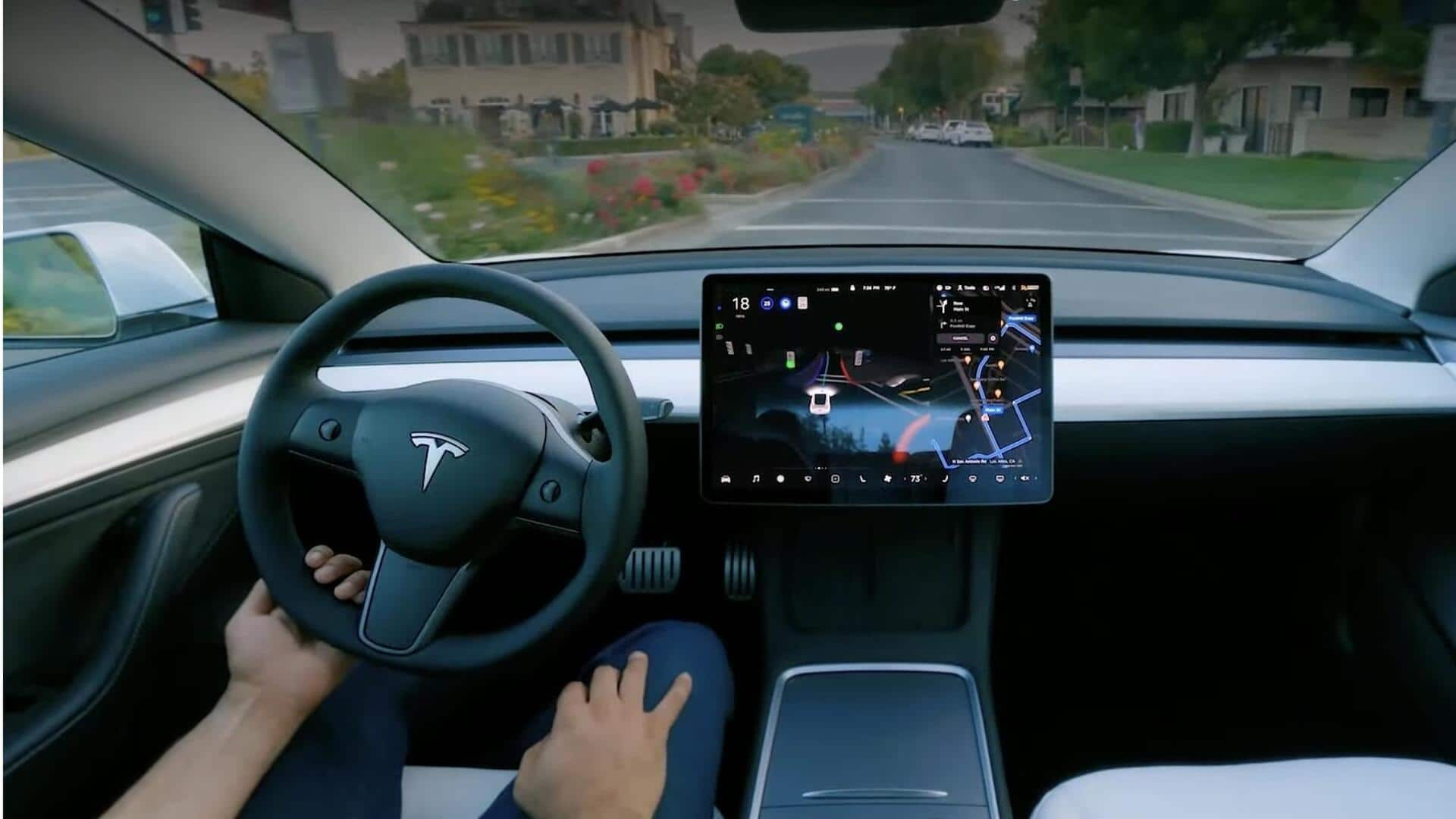
Tesla FSD v14 is coming, Musk says it feels 'sentient'
What's the story
Tesla CEO Elon Musk has announced that the much-anticipated Full Self-Driving (FSD) Version 14 will be released in its early wide release next week. The update was shared by Musk on social media platform X, responding to angel investor Jason Calacanis's praise for the performance of a Hardware 4 Tesla running FSD V13.x.
Release plan
Rollout strategy for FSD v14
In his post, Musk detailed the rollout strategy for FSD V14. He said that the first version would go into an early wide release next week, followed by an update (V14.1) about two weeks later. By the time we reach version 14.2, Musk claimed Tesla cars running on this system would feel "almost like it is a sentient being."
System enhancement
Most important update since v12
Musk's announcement comes after weeks of hints about the capabilities of FSD V14. He has called this system the second most important AI/Autopilot update since FSD V12, which was first introduced to Tesla employees in November 2023. Version 14 is expected to have a tenfold increase in parameter count, a major improvement in the neural networks powering Tesla's autonomous driving system.
User experience
Reduction in 'nags' or steering wheel prompts
One of the key improvements in FSD V14 will be a reduction in "nags," or steering wheel prompts, that drivers have often found annoying. Musk has clarified that while this update is not the same as Tesla's Unsupervised FSD currently used in Austin's Robotaxi fleet, it still promises a major leap in capability.
Twitter Post
Take a look at Musk's claims
Version 14.0 goes into early wide release next week, then 14.1 about 2 weeks later and finally 14.2.
— Elon Musk (@elonmusk) September 25, 2025
The car will feel almost like it is sentient being by 14.2.
Expected features
What to expect in v14
@TeslaClubTurkey on X claims to have seen early release notes for v14, which suggest the update could include: 48Hz camera input for smoother, more responsive driving. Private road navigation without maps, enabling operation in areas without detailed mapping. Autopilot replaced by Autosteer with FSD, moving to a unified vision-only autonomy stack. Smarter parking, including autonomous parking at a chosen destination. Improved speed profiles for adapting to traffic conditions. Better gradient handling for performance on steep roads.